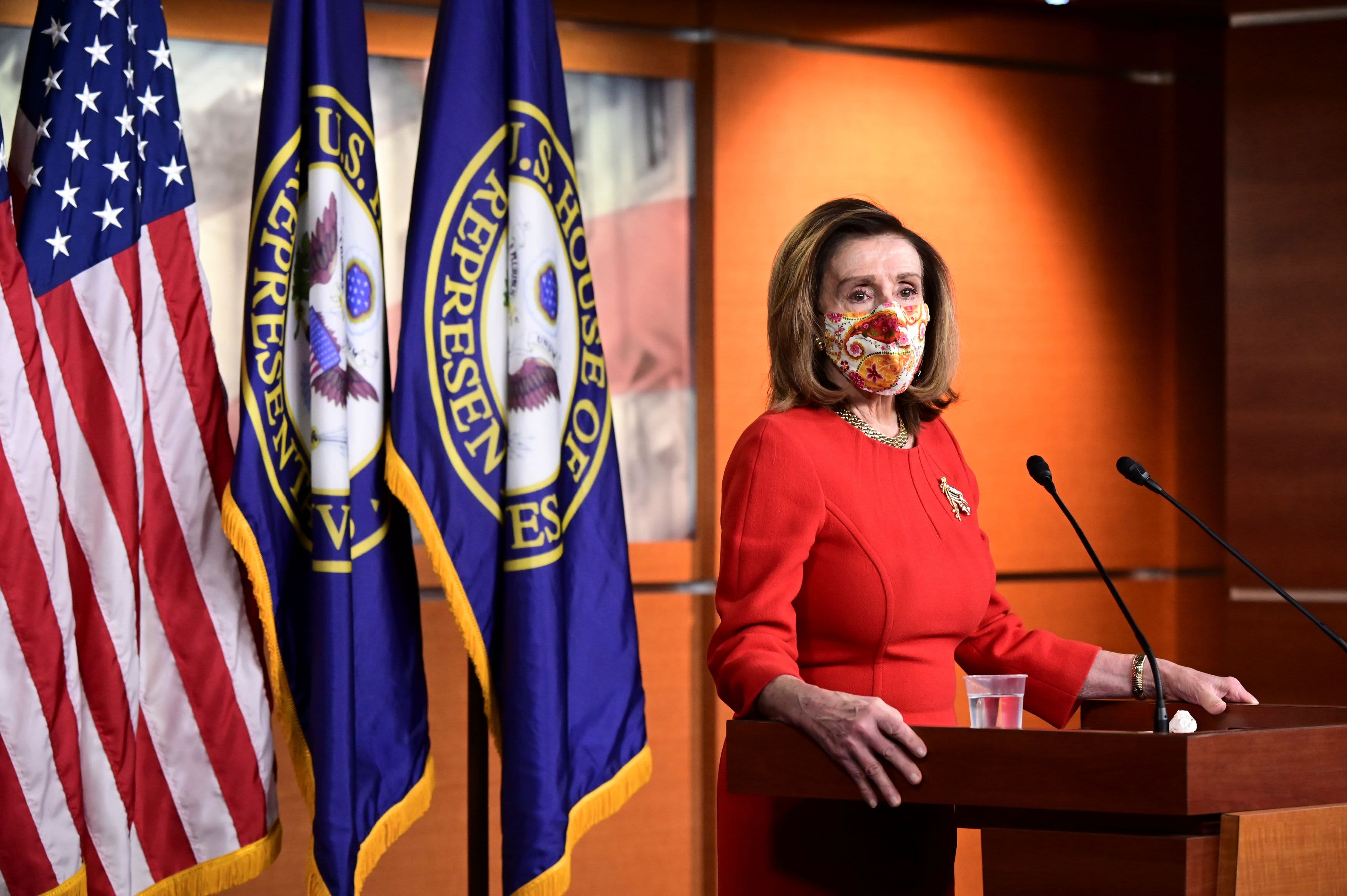U.S. Speaker of the House Nancy Pelosi (D-CA) participates in a news conference on the third day of the Senate impeachment trial of former U.S. President Donald Trump in Washington, February 11, 2021.
Erin Scott | Reuters
House Speaker Nancy Pelosi on Thursday said that a $15 federal minimum wage will be included in the coronavirus aid package the House is preparing to send to the Senate.
“We’re very proud of that,” she told reporters during a weekly press briefing. “As I’ve said, 27 million people will get a raise, 70% of them women.”
Confirmation that the $15 federal minimum wage will be included in the latest version of the $1.9 trillion bill comes just days after the Senate voted on a nonbinding agreement to ban raising the minimum wage during the pandemic.
Still, House Democrats have pushed to keep the wage hike in its version of President Joe Biden’s American Rescue Plan, arguing that boosting pay for millions of workers is important to the U.S. economic recovery. Democrats are preparing to pass the plan through a sped-up process called budget reconciliation that doesn’t require any Republican support.
What happens next?
Pelosi has said the House wants to pass the aid package in the next two weeks, which would send it to the Senate where it faces its final test.
To be eligible for budget reconciliation in the Senate, legislation must have a direct impact on the federal budget. While a few studies have shown that raising the minimum wage would do that, it’s still unclear that the Senate parliamentarian, lawyer Elizabeth MacDonough, will approve the Democrats’ bill. (The parliamentarian is the Senate’s advisor on the interpretation of its rules and procedures, according to Senate.gov.)
Democrats are doing what they can to make the case that the wage hike should be included in reconciliation.
More from Invest in You:
15 hottest careers for freelancers in 2021
How to boost income and find creative ways to make money
Plan out your success before launching your side hustle
“We’re trying to work as well as we can with the parliamentarian to get a minimum wage to happen,” said Senate Majority Leader Charles Schumer, D- N.Y., in a Tuesday briefing. On Sunday, Bernie Sanders, the independent senator from Vermont, said in an interview with Jake Tapper of CNN that a room full of lawyers are working on making the case.
If the parliamentarian says that the $15 minimum wage boost isn’t eligible to be included in reconciliation, Vice President Kamala Harris could overrule her advice. Then, the legislation could be passed with support from 50 Democrats and Harris casting the tie-breaking vote.
“Before we get to what the vice president is going to do, I’ve got to get through the parliamentarian and then I’ve got to get 50 votes in support of raising that minimum wage to $15 an hour,” Sanders said Sunday. “I am working as hard as I can to make that happen.”
When will workers see bigger paychecks?
To be sure, it’s still unclear if Democrats will be able to include the higher minimum wage in reconciliation and pass it with unanimous support. Currently, Sen. Joe Manchin, the Democrat from West Virginia, opposes a hike to $15 an hour but has said he’d support a lesser amount.
Still, Democrats are working to pass the coronavirus aid package by early March, meaning that if a $15 federal minimum wage were included in the final bill, workers could possibly see a raise later this year.
The bill wouldn’t increase pay to $15 an hour from where it currently sits at $7.25 overnight, however.
The first jump, according to the latest version of the Raise the Wage Act, would raise the federal minimum wage to $9.50 an hour and the so-called tipped wage to $4.95 an hour in 2021.
SIGN UP: Money 101 is an 8-week learning course to financial freedom, delivered weekly to your inbox.
CHECK OUT: 3 money moves helped me save $100,000 by age 25, says Break Your Budget blogger via Grow with Acorns+CNBC.
Disclosure: NBCUniversal and Comcast Ventures are investors in Acorns.
